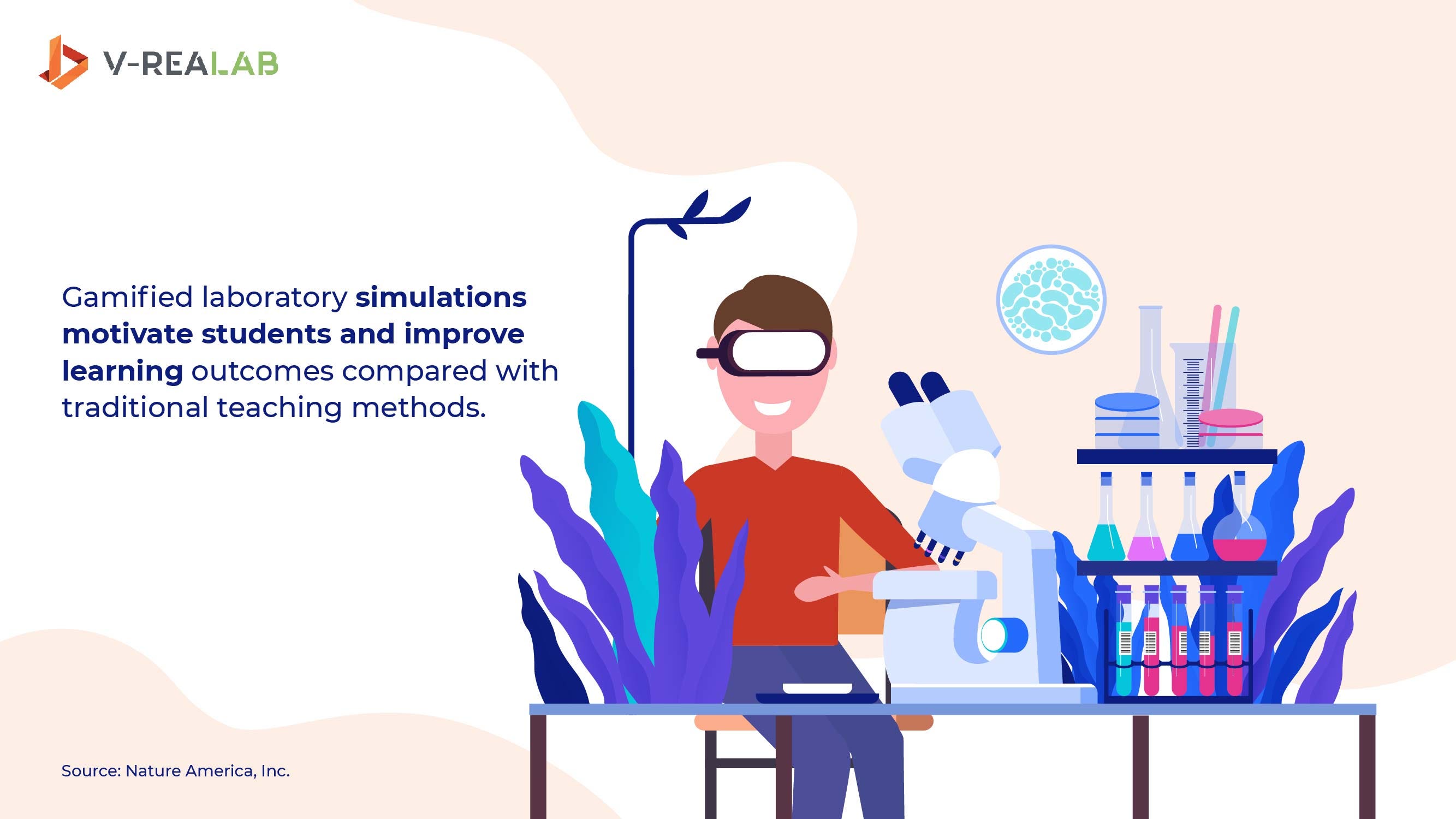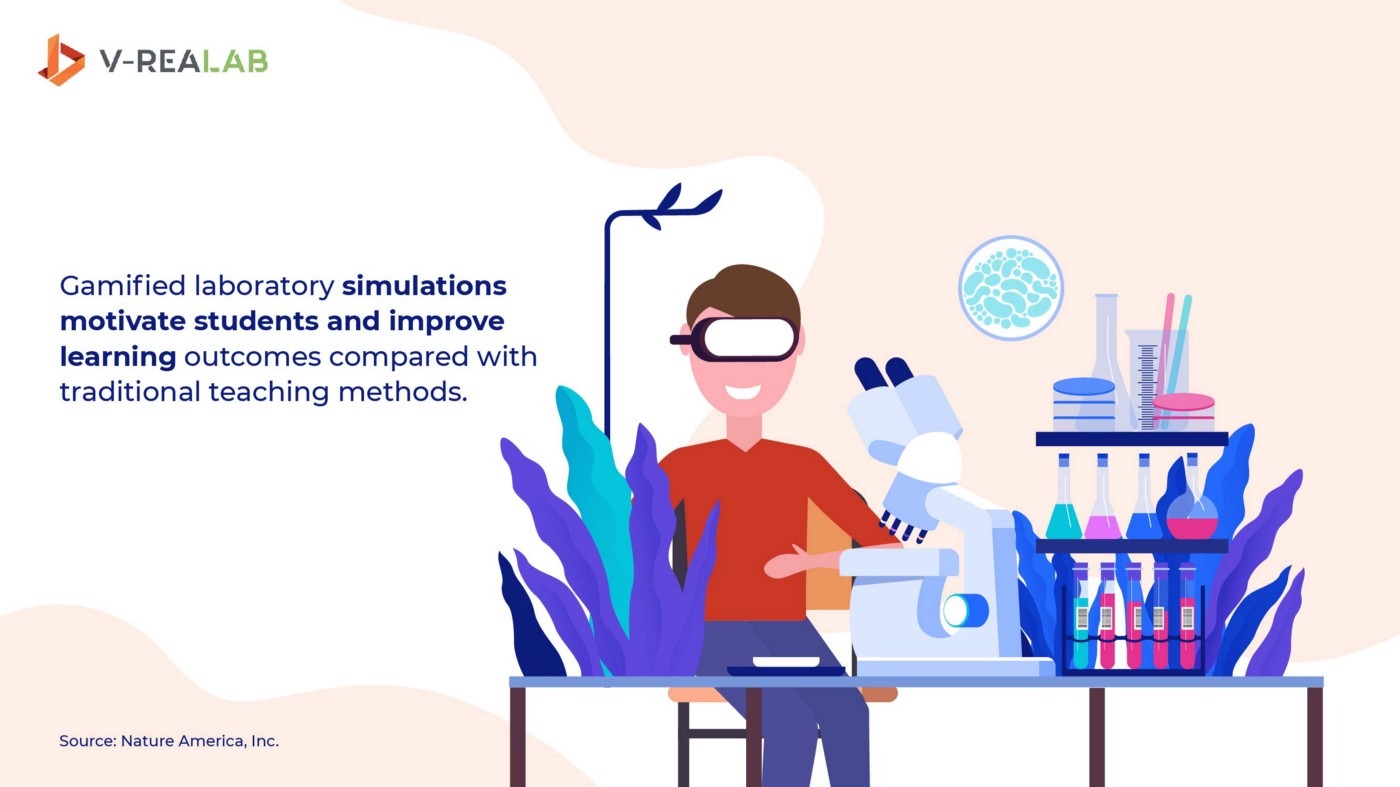Virtual labs are gaining traction as institutions try to expand their reach, reduce costs, improve student understanding, and provide a unique hands-on training for future scientists.
Virtual Reality (VR) in education transforms the way educational content is delivered. One area of education where the VR revolution has started is in science education. An immersive approach to teaching science could make learning fun. But beyond that, it can potentially be an effective aid in teaching.
A virtual lab simulation includes true-to-life missions for students to complete — highlighting the connection between science and the real world. With a wide range of 3D illustrations and animations, quizzes, and theories, the simulations can help students solidify their understanding of difficult concepts. In a virtual lab, students can speed up time to see the results of experiments faster, go back in time to correct mistakes, and repeat experiments to fully understand the material.

Being an integral supplement to physical laboratories, practice in the virtual labs makes students entering the physical lab feel more confident and better prepared. Moreover, these simulations make it possible for students to learn from real-life scenarios that would be impossible to replicate in a physical lab because they are too dangerous or occur only rarely. Fundamentally, a virtual lab allows us to create a unique learning experience in which students can learn by failing in a safe, risk-free environment.
A part of democratizing education is about increasing access to education and providing great learning opportunities for as many students around the world as possible. With V-REALAB, we let all students try out a limitless variety of variables and procedures and crank through the whole process of science in a swifter, cheaper, and more efficient way than is currently possible.
Our standard curriculum-based VR/3D experiment simulations provide a personalized approach to learning, taking individual learning styles and speeds into account. In that way, we offer students a unique opportunity to take their learning into their own hands, as they can learn on their own time, at their own pace, and in their own way.





